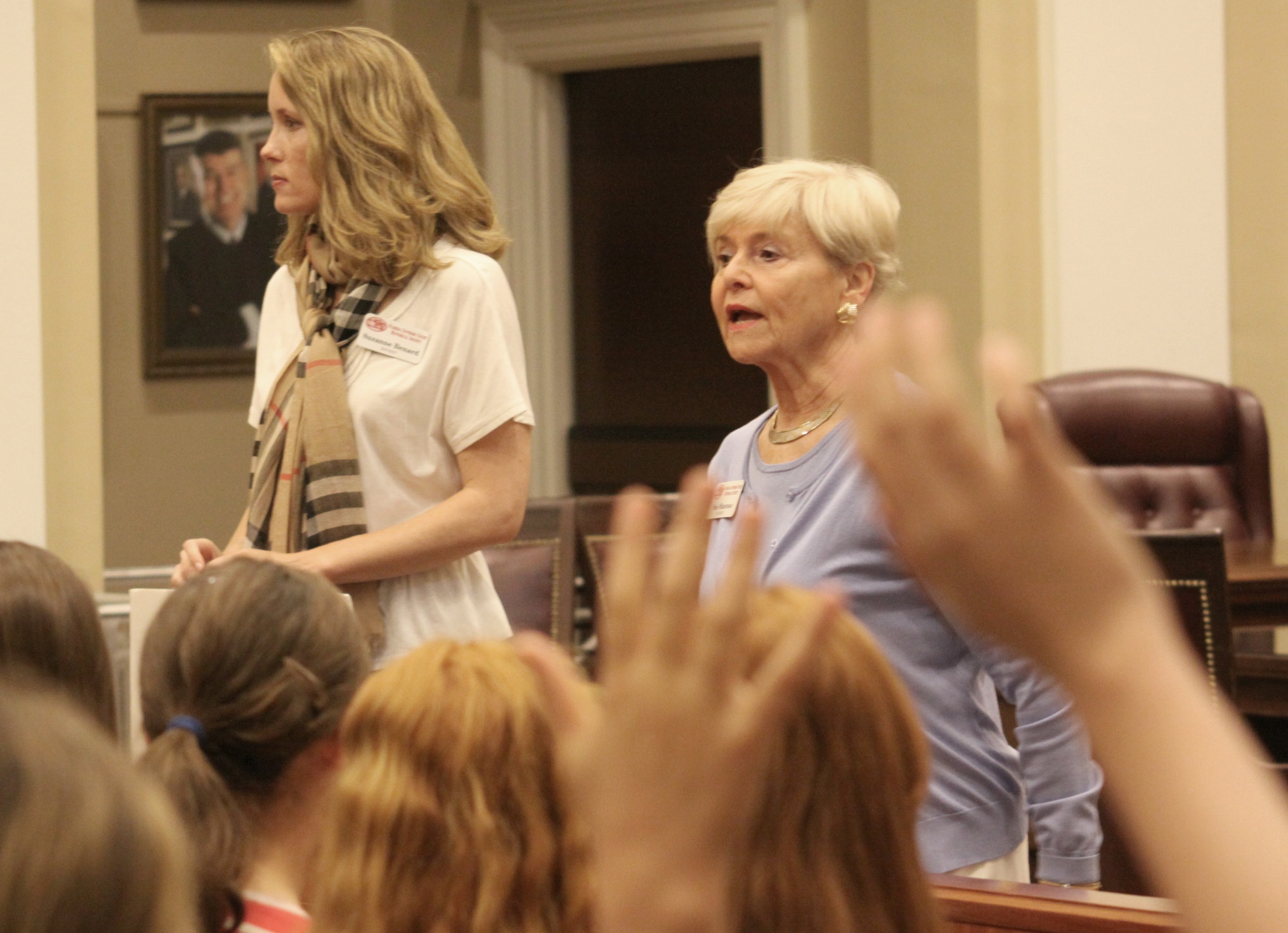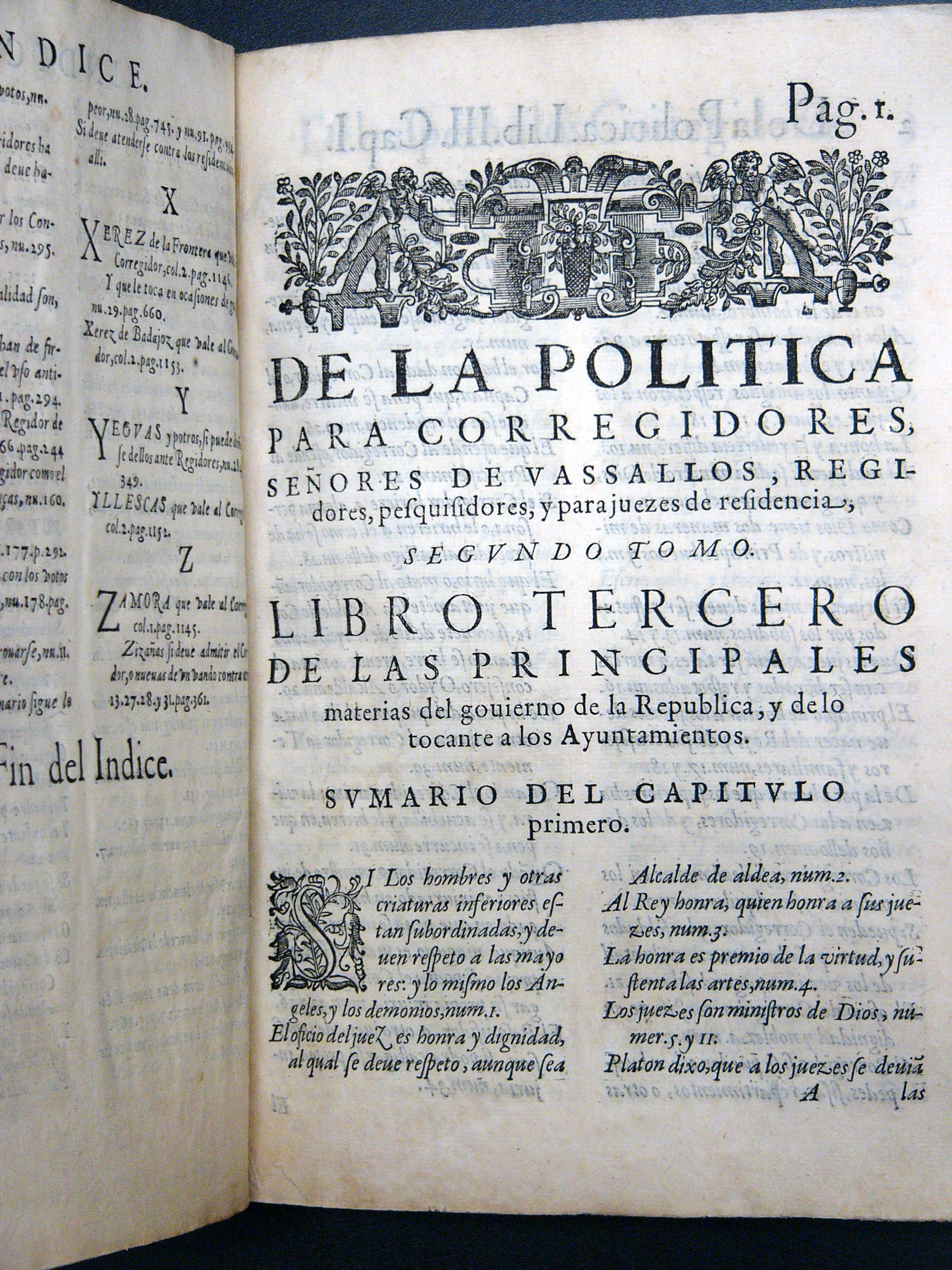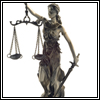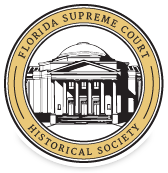- Home
- About Us
- Activities & Projects
- Docent Program
The Docent Program
In 1994 a group of Society members established a docent program to develop materials for conducting tours of the Florida Supreme Court Building. Each year, several thousand people primarily students visit the Supreme Court Building, learning about the history of Florida's highest court, viewing paintings of former Justices displayed in the portrait gallery, and participating in mock oral arguments in the Courtroom.
The Society has developed, or assisted in developing, exhibits displaying significant books and other artifacts, as well as recognizing the contributions of individuals who have had a major impact on shaping Florida's judicial history. The Court’s program relies heavily on volunteers, interns and docents to conduct the various types of tours and programs offered each year. The Florida Supreme Court’s Public Information Office provides yearly  training to new and returning docents, opportunities to watch a tour and encourages the buddy-system for new tour leaders. “Standing in front of a group of 40 middle schoolers can be intimidating but working with a partner makes the experience enjoyable and rewarding,” said Tricia Knox, Education Coordinator for the Florida Supreme Court. training to new and returning docents, opportunities to watch a tour and encourages the buddy-system for new tour leaders. “Standing in front of a group of 40 middle schoolers can be intimidating but working with a partner makes the experience enjoyable and rewarding,” said Tricia Knox, Education Coordinator for the Florida Supreme Court.In past years visitor totals to the Florida Supreme Court remain steady at approximately 5,000 per year. Student groups make up a large portion of the total number. Most tours occur during the court’s “tour season,” January through May. Several programs provide learning opportunities for students, teachers and other visitors. These include historical tours, as many docents from the Historical Society know from personal experience, as well as educational programs and mock oral arguments. The historical tour is popular among adult groups and both students and adults are impressed by the  treasures in the Rare Book Room of the Supreme Court Library. Groups too large for a walking historical tour or a mock oral argument are offered an educational program in the courtroom that features an overview of the Florida Supreme Court, the Florida court system and the role of the judiciary. treasures in the Rare Book Room of the Supreme Court Library. Groups too large for a walking historical tour or a mock oral argument are offered an educational program in the courtroom that features an overview of the Florida Supreme Court, the Florida court system and the role of the judiciary.The mock oral argument, a popular program requested by many 4th through 12th grade teachers, has been offered for almost two decades. This experience allows students to act out an oral argument using a hypothetical case. Students have the opportunity to be justices, attorneys, the clerk and the marshal. This program begins with an overview lesson about the Florida Court System, the Florida Supreme Court and the importance of the judicial branch and ends with an oral argument scenario that is a hands-on, critical thinking exercise. There are 18 First Amendment or Fourth Amendment cases available for tour groups with most cases originating from the United States or Florida Supreme Court. Examples of mock OA cases are The Silent Protest (Tinker v. Des Moines), The School Search (New Jersey v. T.L.O.), Censoring the School Paper (Hazelwood School District v. Kulhmeier), and the Trash Search (California v. Greenwood). A few more timely cases include The K-9 Search (Jardines v. State of Florida) and The GPS Search (United States v. Jones). These oral argument cases are a source of debate among the students long after groups leave the courtroom. Another popular program, Journey through Justice, was established in 2009 and works in cooperation with the local trial court and the Leon County Teen Court Program. This program is designed to give students a complete understanding of the court system and Florida's third branch of government. The Journey through Justice Program is divided into two parts: the mock trial experience and the mock oral argument experience. During the first half of the program, Teen Court staff work to prepare students for a  mock trial experience at the Leon County courthouse. This hands-on role-playing experience introduces students to the various roles in a trial courtroom. During the second half of the program, the students travel to the Florida Supreme Court for the appellate mock oral argument. Students complete their “journey through justice” with a greater understanding of the differences between the trial and appellate courts. mock trial experience at the Leon County courthouse. This hands-on role-playing experience introduces students to the various roles in a trial courtroom. During the second half of the program, the students travel to the Florida Supreme Court for the appellate mock oral argument. Students complete their “journey through justice” with a greater understanding of the differences between the trial and appellate courts.Feedback from teachers is always positive and many teachers are return visitors year after year. This assessment, provided by teacher Beverly Gordon, is typical: "The students really gained a wealth of firsthand knowledge about the judicial branch and its importance to our system of government. The tour was a wonderful opportunity for them to understand the role of the justices and the key players through the mock oral arguments. The students raved about the experience of sitting in the justices' chairs and role-playing as judges, attorneys, the marshal and the clerk. This experience will be something that they will remember for years to come!" |

